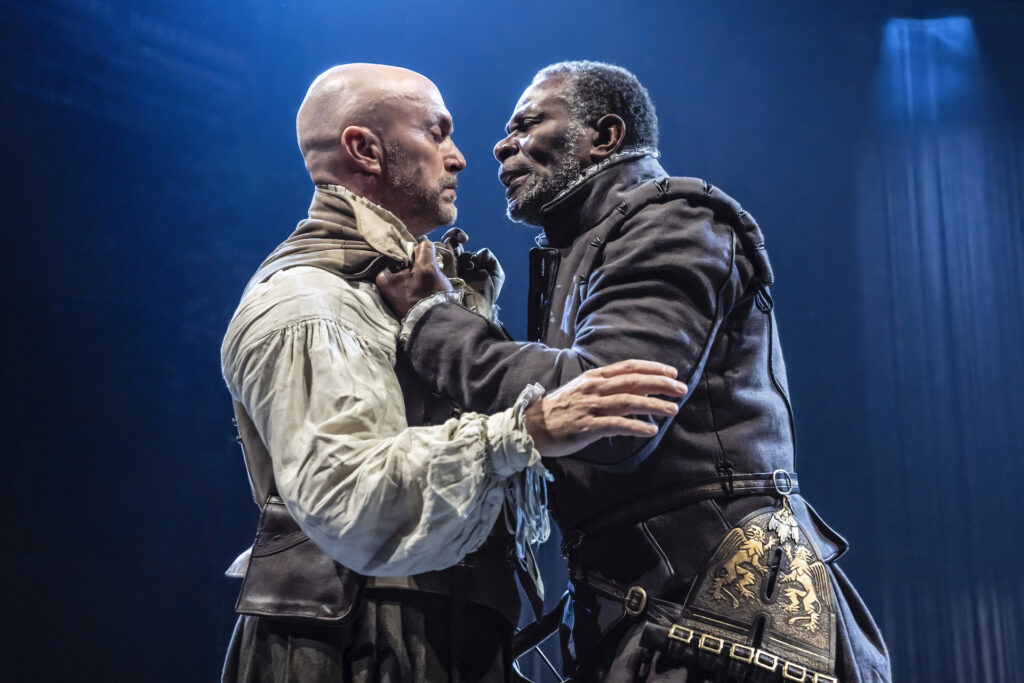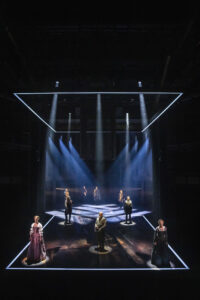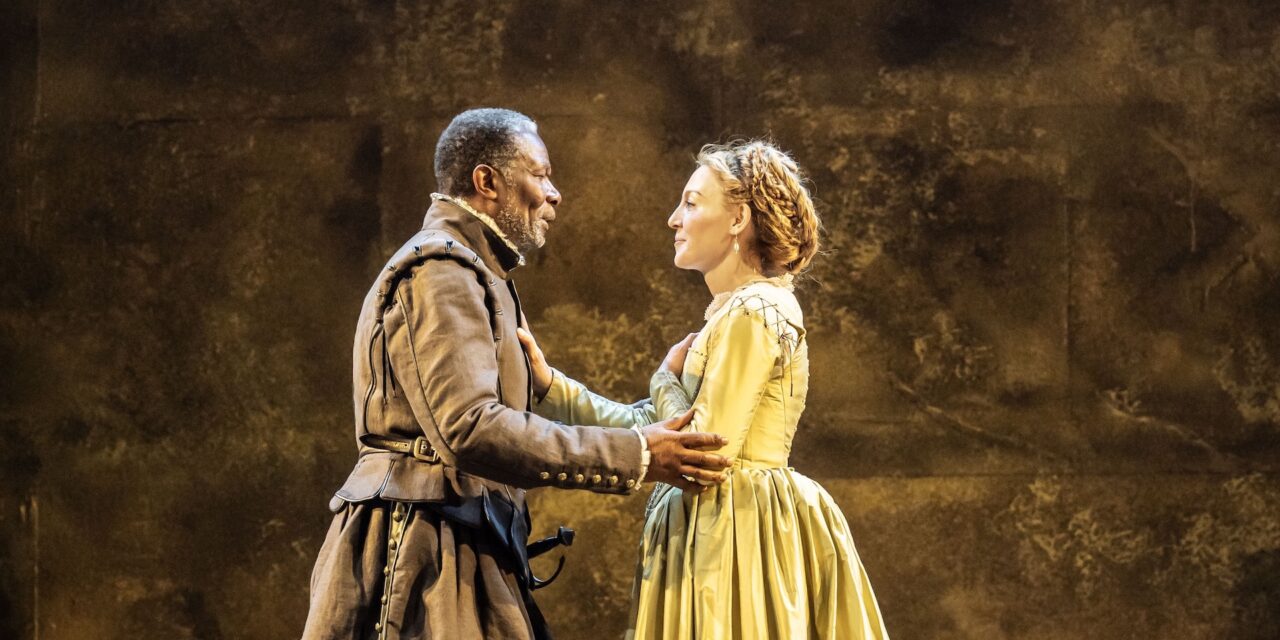
11 October – 23 November 2024
Despite the gulf of centuries, Othello still speaks to a modern audience with a discomfiting urgency on power, sex, misogyny and race. It is a play of whispered secrets and close encounters, and there are moments when it feels almost unbearable to witness. There are no comic interludes, nothing to interrupt the ineluctable descent from joyful triumph to violence and death.
In Tim Carroll’ s spare, moving production, action is played out on a bare stage. Shifts in light and backdrop indicate changes of place and mood, but the overall design by Judith Bowden has a stark minimalism that brings the turbulent emotions of the characters into sharp focus.

The uncluttered simplicity of the set is echoed in the choice of sound and music. James Oxley has composed a score for voice and percussion which hints at early Christian liturgy, while the beat of wood on wood injects a troubling, ominous note. There is a nod to the resurgent Catholicism of the seventeenth century, a period also reflected in the detailed costumes.
Actors are notoriously wary of playing Othello. Apart from the minefield of racial stereotypes, here is a tragic hero whose martial nobility and generous humanity give way all too quickly to suspicion. John Douglas Thompson is a commanding figure bringing warmth and vulnerability to the role, such that his descent to bewilderment and murderous intent becomes eminently credible. He is wonderfully matched by a magical Desdemona (Juliet Rylance). She is a complex character, at once innocent and flirtatious, loving and naïve. From the outset we sense the passion and electricity between them. Her Willow Song is heartbreaking.
Beyond these two pivotal figures we meet a cast of flawed and realistic individuals. There is Cassio (Edward Hogg), vain, weak and easily manipulated, Emilia (Anastasia Hille), well-meaning and kind but ultimately powerless in the hands of her vicious husband. And in him we have the figure on whom any production of this play must ultimately depend, that prime example of the banality of evil, Iago.
Will Keen is superb. One of the notable features of the play is the speed with which everything moves, the way in which the actor pawns are caught up in a power greater than themselves. This is true even of Iago. At first, he is angry and manipulative. But as he succeeds in controlling others, seduced by power and what he reads as success, he can’t back down. There is something terrifying recognizable in the nervous tics, the scratch of the neck, the quick cold eyes. It’s as if we have seen him somewhere before and not on any stage. So that when Othello looks down to his feet, this Devil feels all too familiar.
There is plenty of horror in this play but a stylised treatment spares us the gore and the worst of the violence. The death scene is conjured in sound alone but is no less chilling for that.
In summary, this is a fine production, faithful to the text and the spirit of the text, with no officious attempt to drag it into the twenty first century. The result is an Othello that is all too tragically a play of our time.
★★★★★ Ros Carne, 23 October 2024
Photo credit: Johan Persson


